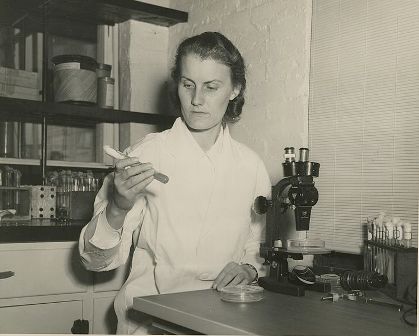should we give up on girls when it comes to maths and science?

I am one of those girls who just could never seem to understand maths and science in school. And that’s not to say I didn’t try or that I didn’t care – it was mostly that I just didn’t understand the numbers jargon in mathematics, and I couldn’t comprehend the complicated equations of chemistry. And while I genuinely loved science, I still fell in between the common crack that appears in most schools: I became one of those girls who didn’t move on to become a technological or scientific mastermind. The gender gap between boys and girls in the maths and sciences is a known one, and the cause and cure have been debated now for many years (to no avail, of course).
A psychologist from Glasgow University, Dr Dijsbert Stoet, spoke recently at a British Education Studies Association conference in Glasgow about this gender gap. He stated, simply, that we should ‘give up on the idea that we will get many female engineers or male nurses’ because a move towards gender equality will ‘completely deny human biology and nature.’ He then added, ‘do we really care that only five per cent of the programmers are women? Well, actually, I don’t care who programs my computers.’
Quite bold statements to make at a conference that was trying to grapple with this huge gender gap issue, and it’s coming off the back of a recent note by Elizabeth Truss, the education minister of the UK, who made it clear that she is concerned that ‘at half of mixed-gender state schools, not a single female pupil was taking physics at A-level.’
But is Stoet getting to the core of the issue here? Because, as The Telegraph author Mary Kenny writes, it is true that ‘females, as a whole, are not hugely engaged by science.’
She claims that this is because science ‘is about facts, and the laboratory testing of elements’ and thus ‘lacks narrative and story-line’ and ‘women – broadly speaking – are drawn to the human factor: to story, biography, psychology and language.’ This claim is not one we can overtly deny, as some would argue that women are usually more in-tune with the emotional side of things. It is, however, a very broad one that doesn’t look at the whole picture.
I, for one, would like to point out that in my schooling in general, I have not been inspired by the fact that rarely did I ever learn anything about female scientists – or female authors, for that matter. It was always ‘let’s learn about what another old white guy has to say about the universe.’
Even while enrolled in university courses taught by open-minded feminists, I was still faced with curriculums littered with old white guys, with a female thrown in here or there for effect.
This, I feel, is a huge part of the problem. Yes, women might be more inclined to prefer the narrative-driven English courses or the philosophical debates of a philosophy seminar, but that doesn’t mean that we should ever stop trying to engage women. And how should we engage them? Well, maybe hold a course that focuses entirely on female scientists? Just to, you know, shake things up a bit.
What do you think, Lipsters?


I think this is treading very close to biological determinism. There’s no way to (ethically) determine exactly how much we are a product of our sex, and how much is social influence. How can we argue that girls are ‘just not interested’ in maths and science, when girls are told from birth that they are better suited to more feminine areas of endeavour? When we have a world that is gender neutral, then, if girls are still avoiding maths and science, we can say it is biological. And only then. Until that time comes, on the 12th of Never, we must continue to shift the ‘narrative’ of STEM subjects, foreground the achievements of women and girls, and encourage girls to pursue these fields. Because EVERYTHING ELSE is pushing them away from these areas.